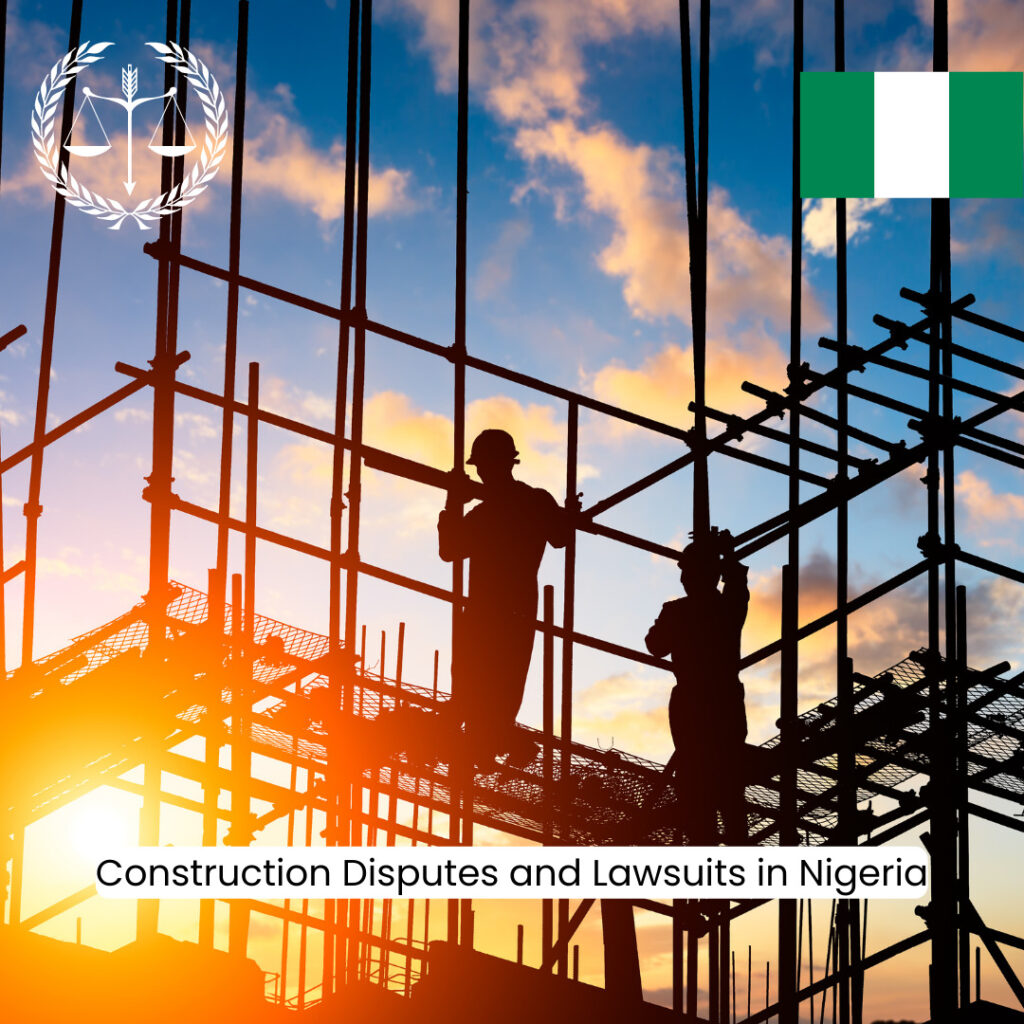Construction Disputes and Lawsuits in Nigeria: Navigating Complex Infrastructure Challenges
The construction industry plays a pivotal role in Nigeria’s development, contributing to infrastructure growth and economic progress. However, complex projects involving multiple stakeholders, intricate designs, and regulatory compliance can lead to disputes. When these disputes escalate and cannot be resolved through negotiation or alternative means, construction disputes often culminate in legal action. This article delves into the landscape of construction disputes and lawsuits in Nigeria, examining common issues, legal considerations, dispute resolution methods, potential ramifications, and the broader impact on projects and stakeholders.

Common Construction Dispute Issues:
- Project Delays: Disagreements over project timelines, leading to schedule disruptions and financial losses.
- Cost Overruns: Disputes arising from exceeding budgeted costs due to design changes or unforeseen circumstances.
- Quality and Performance: Allegations of subpar workmanship, materials, or non-compliance with specifications.
Legal Framework:
Construction disputes in Nigeria are governed by common law principles and statutes such as the Arbitration and Conciliation Act and the Contract Act. Additionally, standard forms of construction contracts, such as FIDIC (International Federation of Consulting Engineers), provide guidelines for dispute resolution.
Resolution Methods:
- Mediation: A neutral third party facilitates discussions to help parties find a mutually agreeable solution.
- Arbitration: A formal process where an arbitrator issues a binding decision based on presented evidence.
- Litigation: Legal action may be taken to resolve disputes through a court process.
Potential Ramifications:
- Project Delays: Ongoing disputes can lead to further delays in project completion.
- Financial Impact: Construction disputes can lead to financial losses for all parties involved.
- Reputation Damage: Publicized disputes can harm the reputation of construction companies and project stakeholders.
Impact on Projects and Stakeholders:
Project Halts: Disputes can halt construction progress, leading to additional costs and lost opportunities.
Stakeholder Relationships: Disputes strain relationships between contractors, subcontractors, owners, and consultants.
Project Delivery: Resolving disputes efficiently contributes to timely project completion and successful delivery.
Conclusion:
In Nigeria’s growing construction sector, managing disputes is essential to ensure the successful completion of projects and maintain stakeholder confidence. Well-drafted contracts, clear project specifications, and effective communication can help prevent disputes from arising in the first place. While legal action is an option, exploring mediation and arbitration can offer quicker and more cost-effective resolutions, preserving relationships and project momentum. Ultimately, an environment that encourages collaboration, transparency, and dispute prevention contributes to a thriving construction industry that supports Nigeria’s economic and infrastructural advancement.